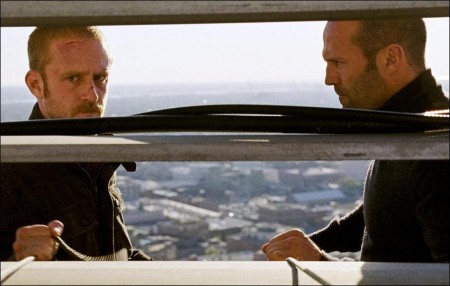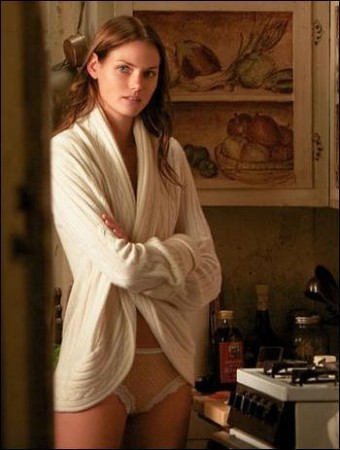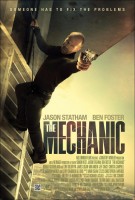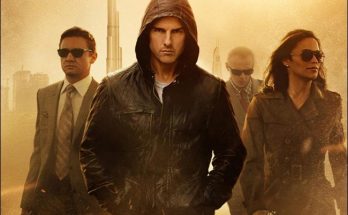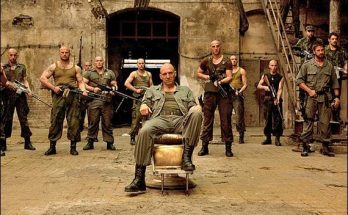Taglines: Someone has to fix the problems.
Arthur Bishop is a ‘mechanic’ – an elite assassin with a strict code and unique talent for cleanly eliminating targets. It’s a job that requires professional perfection and total detachment, and Bishop is the best in the business. But when his mentor and close friend Harry is murdered, Bishop is anything but detached. His next assignment is self-imposed – he wants those responsible dead.
His mission grows complicated when Harry’s son Steve (Ben Foster) approaches him with the same vengeful goal and a determination to learn Bishop’s trade. Bishop has always acted alone but he can’t turn his back on Harry’s son. A methodical hit man takes an impulsive student deep into his world and a deadly partnership is born. But while in pursuit of their ultimate mark, deceptions threaten to surface and those hired to fix problems become problems themselves.
About the Production
Bringing a new version of the 1972 genre classic, and Charles Bronson- starrer, The Mechanic to a modern day audience has been an incredibly memorable experience for producers David Winkler and Bill Chartoff - this due in part to the fact that their fathers, the legendary producing team of Irwin Winkler and Robert Chartoff, produced the original (and are serving as executive producers on the current version).
After spending a decade and a half developing the project, the sons’ goal of bringing the property back to the big screen has finally come to fruition. The Mechanic isn’t the first property they’ve worked on with ties to their fathers (they produced 2006’s Rocky Balboa, the most recent installment of the iconic Rocky franchise their fathers launched in the ‘70s) but they have always held a special affinity for this project throughout the years.
“The 1972 Mechanic was essentially the first in what turned out to be an entire sub-genre – the hit man sub-genre,” notes Bill Chartoff. “It was a very interesting take on a thriller and subsequently led to many other hit man films. David and I always thought screenwriter Lewis John Carlino, who also wrote The Great Santini and many other wonderful films, created a truly unique story, and a new kind of hero in main character Arthur Bishop.”
As Irwin Winkler recalls, the character of Arthur Bishop was one of the primary factors for taking on the original project nearly 40 years ago. “Carlino sent over his script and Bob and I responded to it immediately. Bishop was a very original character, especially for the time - a lonely hit man who seeks human contact and companionship. He takes on an apprentice but, ultimately, that need for a fuller, more humanistic life becomes his downfall.”
Though the original film was successful (particularly in the international marketplace), it didn’t reach ‘genre classic’ status until years later. In the ‘70s, films didn’t have the extended life after theatrical release that films have today. It was only when Cable and DVD surfaced in the following decade that The Mechanic’s exposure grew and an increased fan base emerged.
“People would come up to Bob and I to say they had just discovered The Mechanic and wondered if we ever thought about remaking it,” remembers Irwin Winkler. “We honestly were surprised by the interest because we had almost forgotten about the film in some respects.”
But the response was undeniable and, fifteen to twenty years after filming the original, the men soon found themselves teaming up with their sons to develop what Irwin Winkler refers to as a “re-imagining” of the 1972 version.
The first order of business was the script. After a few early drafts took the story too far from its roots (it started to resemble more of a spy thriller), the producers re-directed the script’s focus back to the foundation of the original – the relationship between Arthur Bishop and his apprentice Steve McKenna.
In the story, Bishop’s mentor and close friend Harry McKenna is killed and his death has a profound effect on the character. In turn, he agrees to train Harry’s estranged son Steve who, hungry for revenge on those responsible for his father’s killing, wants to become an assassin.
“It’s a classic mentor/protégé relationship, and in some ways similar to that of a father and son – a relationship wrought with layers and complications but also with a mythological and Freudian nature,” describes Bill Chartoff. “This dynamic elevated the original film from other genre films of its time and to this day makes The Mechanic an engaging action thriller.”
Arthur Bishop and Steve McKenna’s relationship would remain the core of the story but other elements would have to be updated for The Mechanic to be appreciated by audiences today who have different expectations for an action thriller than those of the ‘70s.
“Films of the ‘70s relied more on mood and atmosphere,” notes Bill Chartoff. “Audiences today expect a drama that is logical and motivated.”
Once the script started to take shape, the next step would be to find a director who could handle a character-based film loaded with action. Enter Simon West.
“I had never seen the original Mechanic. What attracted me to the project was the premise itself,” remarks West. “There have been a lot of hit man movies over the years but this one is different because the assassin makes each killing look like an accident. He doesn’t just shoot people or blow them up in a simple, obvious way. This level of intricacy makes for a far more ingenious and clever story. Arthur Bishop is great at what he does, but he isn’t ruthless, which I found very appealing.”
From the producers’ perspective, West was a natural fit for the project. His filmography, which includes Con Air, The General’s Daughter and Lara Croft: Tomb Raider, easily demonstrates he knows his way around an action sequence but is also great with character. “This kind of film is really Simon’s forte,” notes Bill Chartoff.
“The moment Simon came on board, he put a lot of time and effort into building the characters,” continues Chartoff. “It was very important to him that they be complex, not mere caricatures. He wanted them to be relatable with motivations that lent credence to the plot and the story.”
West found Bishop particularly relatable for the stage Bishop is at in his career. “Bishop is at a point in his life where he’s at the top of his game but he’s just not sure it works for him anymore. I think that’s something people can identify with.”
Bishop would have to be sympathetic but also have the presence of an elite, unparalleled assassin- a ‘mechanic.’ As Bill Chartoff notes, “there aren’t many actors today who can fill Charles Bronson’s shoes.” Finding the right actor to play the role would be crucial.
The Mechanic
Directed by: Simon West
Starring: Jason Statham, Ben Foster, Mini Anden, Tony Goldwyn, Donald Sutherland, Jeff Chase, Lara Grice, Christa Campbell
Screenplay by: Richard Wenk
Production Design by: Richard Lassalle
Cinematography by: Eric Schmidt
Film Editing by: T.G. Herrington, Todd E. Miller
Costume Design by: Christopher Lawrence
Set Decoration by: Leonard R. Spears
Art Direction by: Jason Hamilton
Music by: Mark Isham
MPAA Rating: R for strong brutal violence throughout, language, some sexual content and nudity.
Studio: CBS Films
Release Date: January 28, 2011
Hits: 119
